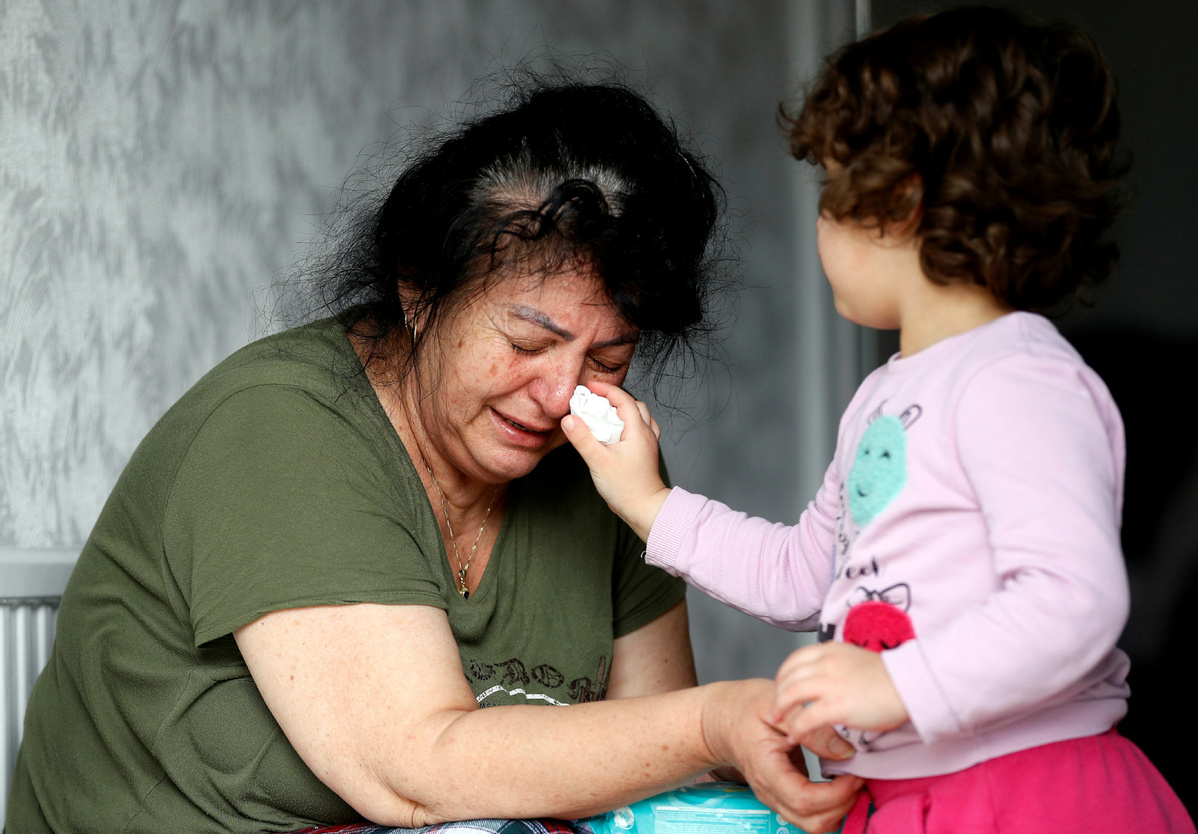UK govt urged to help pandemic's 'forgotten victims'
By EARLE GALE in London | China Daily Global | Updated: 2020-08-26 09:07

More funds sought for research into the long-term impact of COVID-19 disease
An influential group of elected United Kingdom lawmakers has called on Prime Minister Boris Johnson to meet families of people who have died from COVID-19.
The All-Party Parliamentary Group on Coronavirus also wants him to increase funding for research into the long-term impacts of the disease.
The recommendations are part of the group's latest biweekly report and follow it meeting 1,100 people who either lost loved ones or were left with long-term health issues, a phenomenon known as "long COVID", the Guardian newspaper reported.
The MPs studied more than 600 submissions before concluding "long COVID" has at least 18 reoccurring symptoms, including breathing difficulties, exhaustion, purple toes, and aching muscles.
Layla Moran, the Liberal Democrat MP who chairs the group, told the paper: "Those living with the long-term impact of COVID have become the forgotten victims of this pandemic. Many are suffering daily from debilitating symptoms but feel they're not being listened to or taken seriously."
She said the under-studied and under-supported cohort includes people who have not been hospitalized or tested.
The parliamentary group believes a better understanding of "long COVID "would help as the UK prepares for a feared second wave of novel coronavirus, which causes COVID-19.
The group also called for a judicial inquiry to be held into the UK's experience of the pandemic.
The BBC, meanwhile, reports that thousands of people who contracted novel coronavirus did so while in hospital, a fact that is part of a King's College London study of 10 UK hospitals. Researchers said at least one person in eight who subsequently tested positive for the virus caught it while in hospital. But, far from being alarmed by the finding, they said the ratio was actually rather low and proved effective infection control was in place.
Ben Carter, the study's lead author, told the broadcaster: "The majority of these patients had already been in hospital for a long time. They were older, frailer, and had pre-existing health conditions."
The government, meanwhile, believes schools in England and Wales will also have effective infection control in place when they reopen early next month. Students went back to class in Northern Ireland on Monday and in Scotland on Aug 11.
Scotland's education minister, John Swinney, said on Tuesday that all secondary school students there are now being advised to start wearing face coverings in communal areas starting on Monday.
He said on BBC Radio Scotland's Good Morning Scotland: "This is not going to be mandatory. We are recommending this is what should be done and we will encourage schools to pursue that as part of the work to maintain safety within schools."
The move followed the World Health Organization saying on the weekend that secondary school students should wear face coverings if possible.
In the meantime, the search for an effective vaccine continues and got a boost on Tuesday when Cambridge-headquartered British-Swedish multinational AstraZeneca said it has started a UK-based trial for a potential antibody-based COVID-19 treatment involving 48 healthy UK residents.
The Evening Standard newspaper said the company hopes the treatment will work for people who are unsuitable for a vaccination and offer both protection and help in recovering.
The paper quoted Mene Pangalos, an R&D executive with the company's BioPharmaceuticals subsidiary as saying: "This trial is an important milestone in the development of our monoclonal antibody combination to prevent or treat COVID-19."
AstraZeneca is also developing a potential vaccine with scientists at the University of Oxford.
Professor Andrew Pollard, who is involved in that project, said on BBC Radio 4's Today program on Tuesday that around 50,000 people worldwide are currently being given that potential vaccine as part of the testing process.
On the European mainland, Germany reported on Tuesday its economy contracted by a record-breaking 9.7 percent in the second quarter. The Reuters news agency said the slump was more pronounced than the financial crisis of 2008.
And infections on the continent continue to rise following lockdown relaxations. Spain has been hardest-hit, with more than 78,000 new cases recorded during the past two weeks.
























